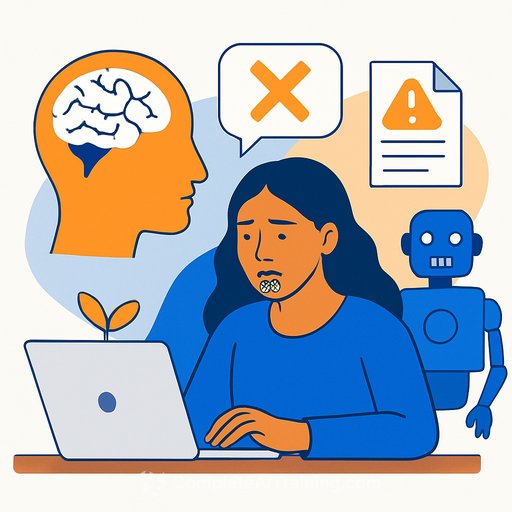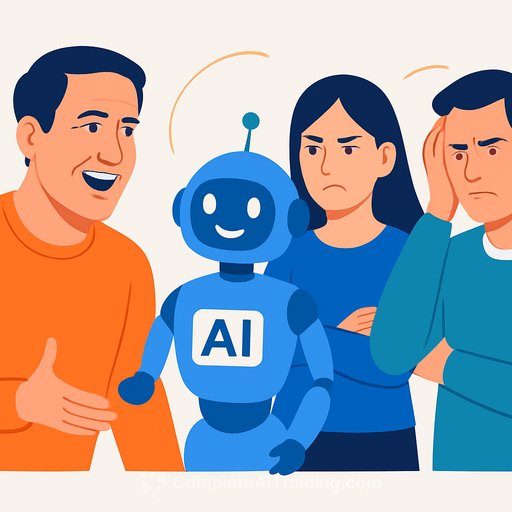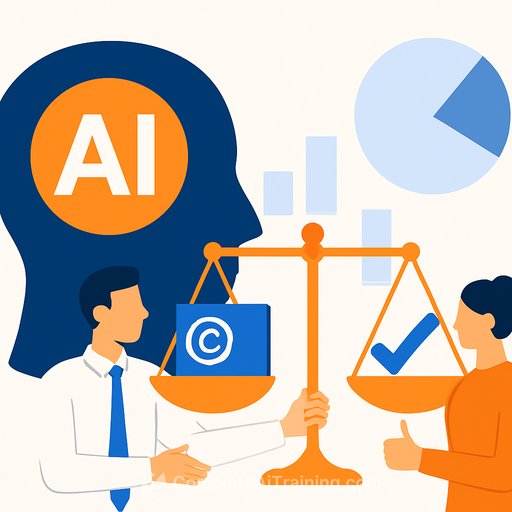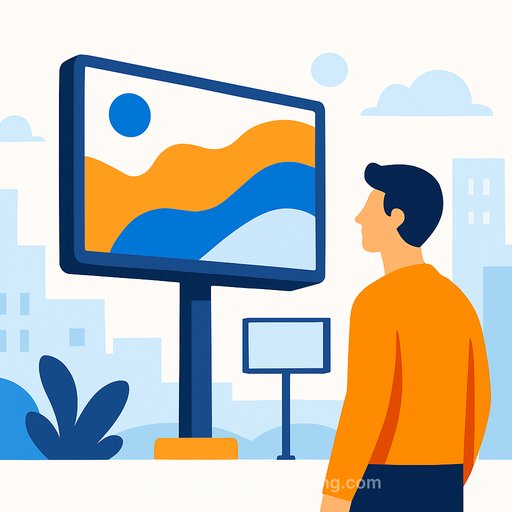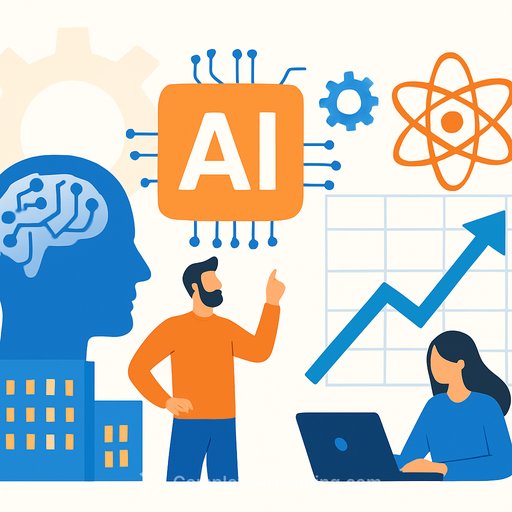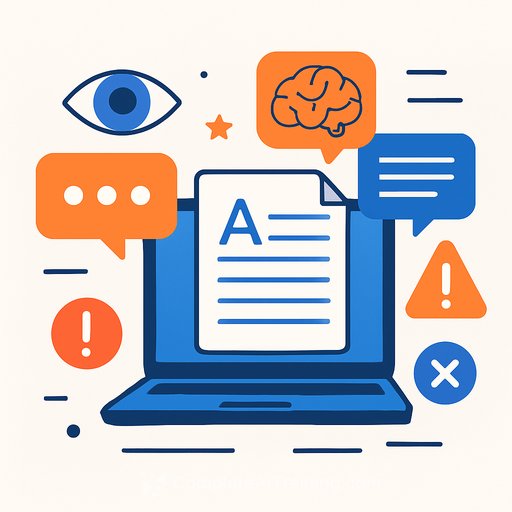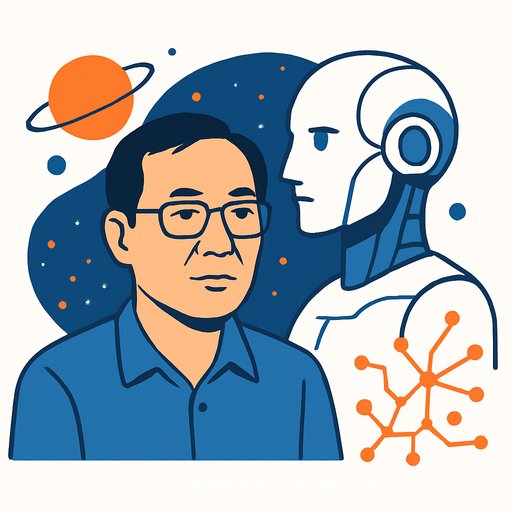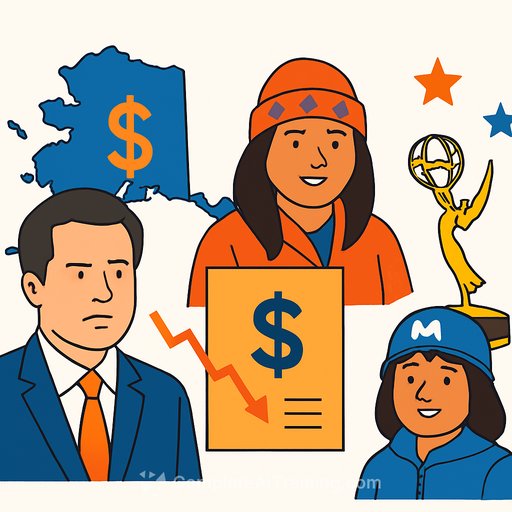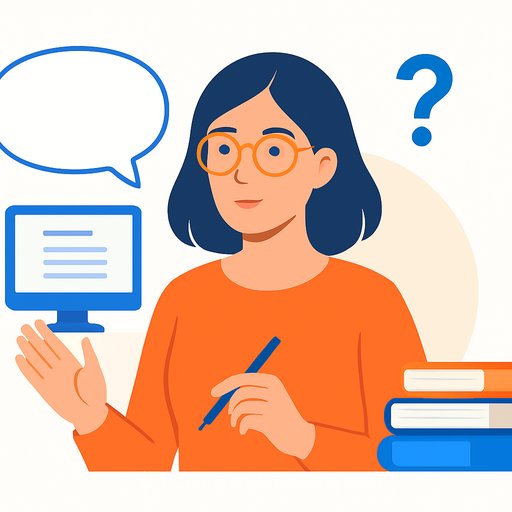What New Zealand creatives think about generative AI
Would you be disappointed if the art you paid hundreds for was made by a machine? How would you feel about a poetry book co-written by a chatbot? With generative AI everywhere, creatives in Aotearoa are deciding where they draw the line.
Here's how writers, musicians, designers, and arts leaders across New Zealand are responding-and what you can do to protect your work while staying competitive.
Pip Adam - Wellington novelist, short story writer, reviewer
A March report said Meta used shadow library LibGen to train Llama 3, and included a tool for authors to check if their books were in the mix. Adam searched and found three of her novels listed. "All I have is my ideas... to have those taken holus-bolus is frightening."
Her stance is clear: using AI in creative work risks too much. She points to "approval-hacked" behavior, hallucinations, and a tool that "aims to please" over telling the truth. "For the first time ever we have something that is not human that can speak back to us... but I don't trust it."
Craig Jones - Taranaki designer, musician, founder of Maajor Brand Studio
Jones worries AI and social feeds blunt people's opinions. He values wrestling with ideas because that's where you figure out who you are. The edit is "really self-reflective."
His concern: AI fast-tracks technique. Production value drops because it happens too fast, and you skip the part that matters-self-reflection and commentary on the world. There's tension between skills built over years and outputs created in seconds on the back of human-made work.
Dr. Susanne Belarmino and JP Bell - Timaru musician/poet/social scientist; photographer/abstract painter/poet
Belarmino sees upside: easier access to music creation and useful post-production help. She's used AI to master tracks and loves the accessibility. But she wants clear rules. If others profit from work based on her art, "I find it's not fair."
Bell wants to push the tools, not fear them. For him, it's still art if a human brings the deeper layer-the spirit, survival, history. Photography forced a reset and new movements followed; AI may do the same. Art stays personal, subjective, process-driven.
Riley Chance - Palmerston North author
Spellcheck? Sure. Character arcs? No. Chance says building characters and plot is a human job. Asking a model to do it "imitates the process," and that makes you the editor, not the author.
He also found his novel listed in LibGen's database. "I didn't write the work so you could use it to make other work." He believes the reader-book connection is human, and he wants to keep it that way.
Dion O'Conner - Invercargill musician and founder of Gather & Reel
O'Conner admits the tension: he wants musician rights protected, yet he uses AI to create jingles and website designs for clients. The outputs were "way better than I could" in some cases, and projects that took a week now take a day.
He still centers human collaboration and discovery with clients. He doesn't see AI replacing musicians or live shows, but he expects it to squeeze certain jobs as faster, cheaper production spreads.
Courtney Ieremia - Marlborough romance author and media studies teacher
Ieremia won't use generative AI in her writing. To her, it devalues the medium and feeds a trend that prioritizes money over art. She doesn't believe AI can produce equal work because art's job is to reflect and move humans.
She's worried by students who accept chatbot outputs as fact without asking who wrote the source and why. Finding her own novel on LibGen raised a blunt question: what is the point of copyright if those with more power override it?
What experts are saying
Jenny Nagle - CEO, New Zealand Society of Authors
Nagle calls it a vexed issue, especially with models reportedly trained on copyrighted work. She sees LLM-written books that look like "copyright infringement rip-offs," but also knows authors who use AI for planning, research, structure, and deep editing.
Sam Irvine - CEO, Copyright NZ
Irvine says you can be pro AI and pro copyright. Drafting and editing support is fine if you acknowledge it. The problem is passing off AI-made work as your own, or training and outputs pulled from other people's work without permission. "These companies seem to think it's OK to take people's work and not pay for it."
His advice: keep advocating for rules and guardrails, and don't accept carve-outs that give Big Tech free access to our data. He stresses care for the intellectual property associated with te reo Māori and taonga-uniquely of Aotearoa.
Claire Murdoch - Senior manager, arts development at Creative NZ
Creative NZ is already seeing more frequent AI acknowledgements in applications and is developing guidance for artists. Transparency matters. AI can be a tool, not a replacement for mātauranga, human judgement, artistic vision, or creative expertise.
Practical moves for writers, musicians, and designers
- Decide your boundary. Spellcheck and mastering may be fine; authorship and composition may not. Write it down. Share it with clients and collaborators.
- Disclose AI use. Add a short note in your book, album, or project credits. It builds trust and reduces legal risk.
- Protect your IP. Track where your work appears. Use takedown requests where applicable. Add licensing terms that ban training on your content.
- Update contracts. Include clauses on AI use, data, and credit. Specify what's allowed (editing, noise reduction) and what's not (ghostwriting, art generation in your style).
- Price the process, not just the output. If AI speeds delivery, charge for creative direction, taste, and revision loops-the human edge clients actually want.
- Keep the human layer obvious. Story, taste, and lived experience are hard to copy. Make that visible in your work and marketing.
- Stay informed. Track policy changes, model capabilities, and risks to cultural IP, including te ao Māori.
Where to learn and adapt fast
Want structured ways to test tools without losing your voice? Start here:
- AI tools for copywriting - find and benchmark tools for drafting, editing, and ideation.
- Prompt techniques - get better outputs while keeping your style intact.
Bottom line: creatives across New Zealand are split, but the message is consistent-be transparent, protect your rights, and keep the human element front and center.
Your membership also unlocks:

